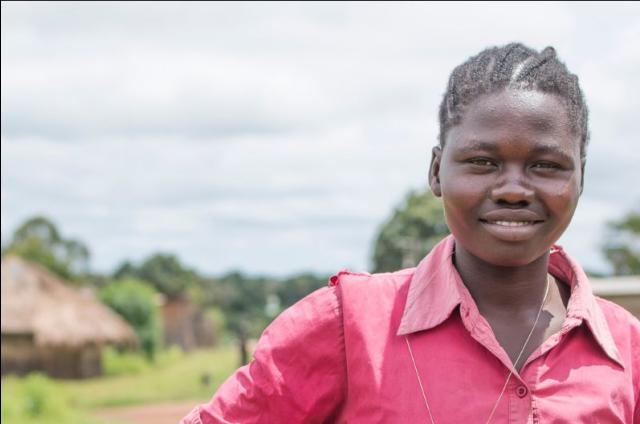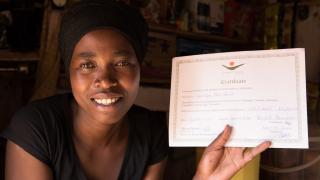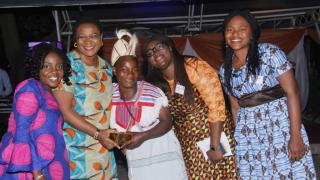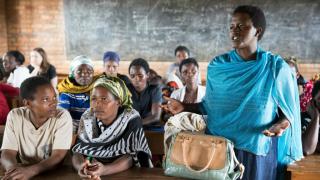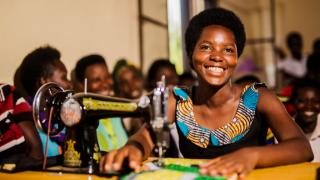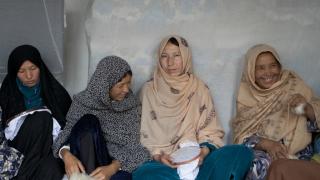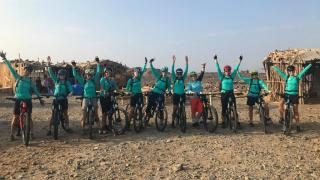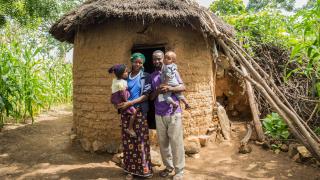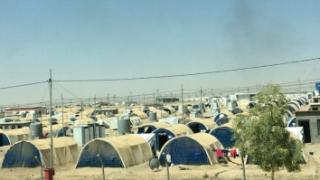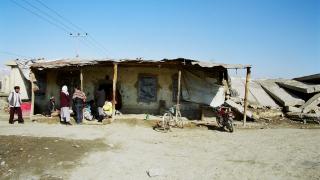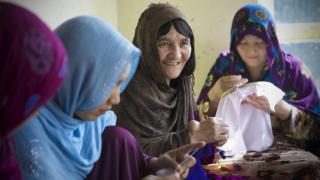From Conflict to Collaboration: A Couple's Transformation
From Conflict to Collaboration: A Couple's Transformation
The journey of two graduates of our programme, Mawa and Jackline, finding peace through our programme
Mawa and Jackline have been married for six years. They live in Wuluturu, Yei River County, South Sudan, with their two children. Their marriage was on the brink of collapse when they were enrolled in our Couples Connect Pilot Programme.
Today, Mawa shares that they now live together in harmony. Here is his story.
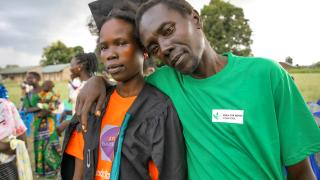
In my culture, being a man means being the head of the family. This title comes with responsibilities but also a lot of privileges.
As the head of my household, I was raised to be the sole provider and decision-maker. Everything I said or did was final. My wife wasn’t supposed to seek financial independence or earn a living; she was meant to stay home and take care of the family.
This belief shaped my expectations when I got married.
To my surprise and frustration, my wife was not the obedient woman I expected. She had a mind of her own and wanted to contribute financially. She would buy things for our home without my input, prepare meals with money I hadn’t given her, and even engage in small businesses and casual labour to make her own money. This independence didn't sit well with me. I was suspicious - where did she get the money? Why was she always away from home? Was she trying to compete with me or, worse, undermine my authority?
My suspicions turned to anger. I verbally insulted her and sometimes became violent. I threw away food she prepared with her own money and restricted her movements.
Our home became a battleground, and we became enemies living under the same roof.
One morning, my wife suggested we join the Couples Connect Programme with Women for Women International.
Initially, I was hesitant. But she mentioned that we might receive financial support if we attended together. Reluctantly, I agreed, motivated only by the prospect of money.
As we participated in the programme, something remarkable happened. We learned about teamwork, sharing responsibilities, effective communication, problem-solving and financial management.
Slowly, I began to understand and appreciate my wife’s efforts.
We started talking again, discussing business, farming and our children. I began supporting her business and we started working together. By the end of the programme, we received some capital, which we invested in her business.
Today, our lives are transformed. I can relax a little, knowing that I don’t have to shoulder every burden alone.
We are a team.
Recently, I developed an illness that affects my ability to walk or stand, making it difficult for me to work. My wife has become the primary breadwinner, contributing up to 70% of our family’s income. I now support her as best I can.
I am grateful to Women for Women International for this life-changing programme and for giving me another chance at love.
I am also grateful to my wife for being strong and persistent.
Without her, I don’t know how I would manage in my current condition.
To all women, I encourage you to support your husbands and not give up on your families. And to the men, I hope you learn from my experience: support your wives, and if you can’t support them, at least don’t stand in their way.
keep reading
This International Women’s Day, one of our Rwanda programme graduates, Clarisse, shares her inspiring story of beating the odds to become a successful businesswoman.
Solar Sisters
subtitle:
We are incredibly proud and inspired by two of our programme graduates in Nigeria who have been recognised for their outstanding achievements marketing and selling clean energy products in their communities.
#ForWomenWithLove
subtitle:
We spoke to our committed Ambassador, Arizona Muse, about the power of sisterhood and her role in the creation of a partnership with Chinti & Parker.
100 Years of #MeToo
subtitle:
Our Executive Director, Brita Fernandez Schmidt, discusses the inherent inequality in our society and what we can do to redress it.
"Working in the charity sector takes a lot of passion, and grit... There are no small jobs and teamwork is a massive component of our success." Our Campaign Manager, Paulina Stachnik talks about what motivated her to consider working for a charity and her commitment to serving the women in our programme.
When it comes to protecting women’s rights in conflict-affected countries, it’s time to turn resolutions into reality. The UK’s new Plan is a step in the right direction.
Cycling Through the Gateway to Hell
subtitle:
In November 2017, 12 women embarked on a two-week Mountain Biking Expedition across the Danakil Depression of Ethiopia, to raise funds for our work with women in countries affected by conflict.
Women for Women International and 20-first are tackling gender inequality and discrimination from countries affected by conflict to boardrooms and homes across the West, making equality everyone's business.
Katie shares her experience in Erbil, Kurdistan Region of Iraq.
Engaging Men to Make a Difference
subtitle:
Special insight from Ghulam Rabi, a men's engagement programme graduate from Afghanistan.
Secretary Hillary Rodham Clinton sat down with CNN’s Chief International Correspondent Christiane Amanpour at our annual Luncheon to discuss the importance of women's involvement in peace and security around the world.
Women for Women International is providing programme graduates in Afghanistan with advanced training in advocacy and leadership skills through a dedicated, three-month programme and supporting them to identify the changes they want to see and advocate for them.

